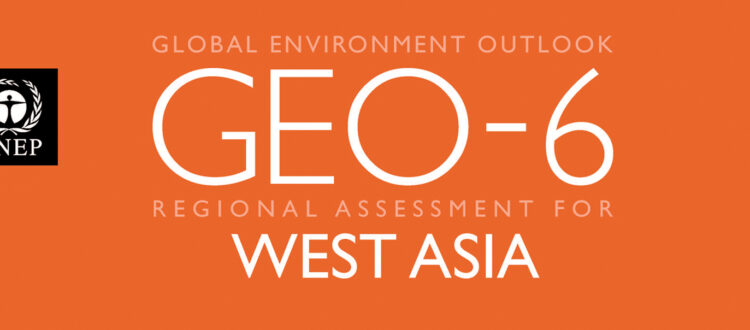Global Environment Outlook (GEO-6) Regional Assessment for West Asia
CEDARE Co-chaired the West Asia assessment with Arabian Gulf University. The GEO-6 Regional Assessment for West Asia is a comprehensive report that details the environmental factors impacting human health and well-being in the region. The report, which is backed by a large body of recent scientific evidence, regional-wide consultations, and a robust intergovernmental process, emphasizes the complexity of the interlinked environmental, social, and economic challenges now confronting decision-makers.
Partners
United Nations Environment Programme (UNEP)
Region / Country
West Asia
Objectives
To provide a comprehensive understanding of the environmental factors contributing to human health and well-being in West Asia and to highlight the interlinked environmental, social, and economic challenges facing the region.
Timeline
From – To 2015 – 2018
Outcomes
The report provides an extensive analysis of the environmental challenges in West Asia and calls for a concerted effort from governments, civil society, and the private sector to address these issues. It highlights the importance of environmental governance and sustainable growth for achieving food security, sustainable water sources, reduced vulnerability to disasters, climate change mitigation, permanent energy solutions, and conservation of natural resources.
Publications/website/portal
UNEP 2016. GEO-6 Regional Assessment for West Asia. United Nations Environment Programme, Nairobi, Kenya.
Relevance to SDGs
The outcomes of the GEO-6 Regional Assessment for West Asia contribute to several Sustainable Development Goals (SDGs). They align with SDG 13 (Climate Action) by addressing the impacts of climate change in the region, and SDG 16 (Peace, Justice, and Strong Institutions) through the emphasis on good governance. They directly support SDG 2 (Zero Hunger) and SDG 6 (Clean Water and Sanitation) by highlighting the importance of food security and sustainable water sources. They further contribute to SDG 7 (Affordable and Clean Energy) and SDG 15 (Life on Land) by discussing permanent energy solutions and the conservation of natural resources. By calling for concerted efforts from various sectors, the project also supports SDG 17 (Partnerships for the Goals).

